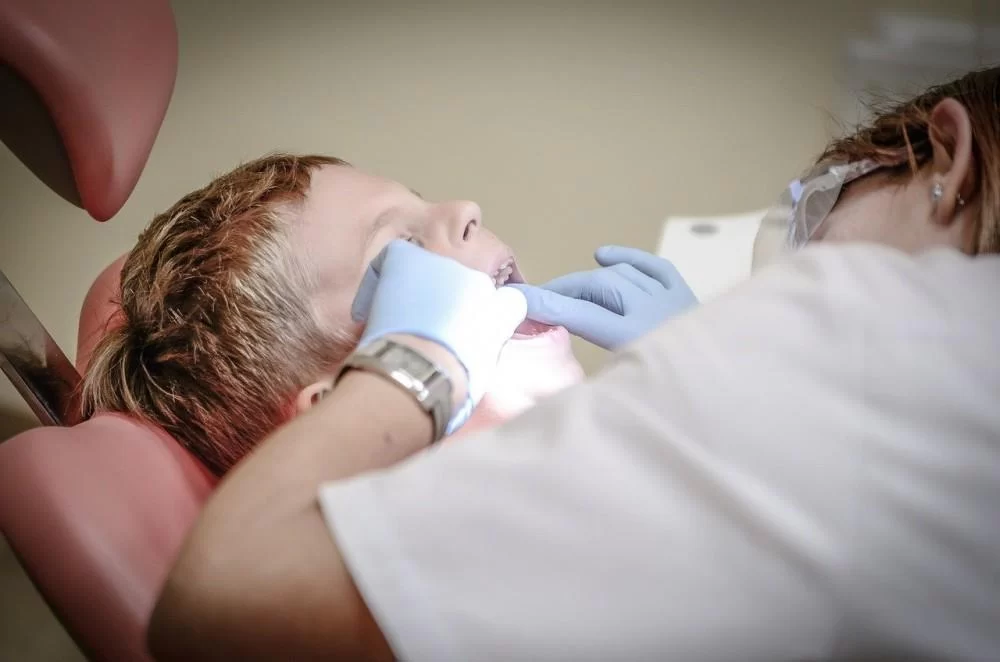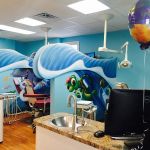
When to Call Your Dentist: Understanding Dental Emergencies
It was a rainy Saturday afternoon, and I was indulging in my favorite pastime – eating a bag of popcorn while watching a movie. Then it happened. I bit down too hard on a kernel, and suddenly, a sharp pain shot through my tooth. I couldn't help but think, "Is this a dental emergency?" The pain lingered for hours, and I was left wondering whether I needed to call my dentist or if I could wait until Monday. This situation got me thinking about how many people might not know when they should contact their dentist during a dental emergency. If you’ve ever found yourself in a similar situation, you’re not alone, and this article will guide you through the process of deciding when it’s time to make that call.
1. Recognizing the Signs of a Dental Emergency
We’ve all experienced a minor toothache or the occasional discomfort from a sensitive tooth, but how do you know when it’s something more serious? In my case, the sharp pain and swelling around my tooth told me that I needed to take action. Dental emergencies can range from sudden injuries to ongoing pain that doesn’t seem to subside. So, how do you recognize the signs that something needs immediate attention? Here are a few key indicators:
- Severe Tooth Pain: If you’re experiencing intense pain that doesn’t subside with over-the-counter pain relievers, it's time to call your dentist. This could indicate an infection, abscess, or a deep cavity.
- Broken or Chipped Tooth: Whether from an accident or chewing something hard, a broken or chipped tooth needs attention. A broken tooth can lead to infections or further damage if not treated.
- Swelling or Bleeding: If your gums are swollen, painful, or bleeding, it could be a sign of infection, gum disease, or a more serious issue that requires dental care.
- Loose Teeth: If you notice that your teeth are loose or shifting, it’s crucial to contact your dentist right away, as this could signal a problem with the tooth's foundation.
- Lost or Dislodged Tooth: If you’ve lost a tooth due to an accident, time is of the essence. The sooner you act, the better your chances of saving the tooth.
2. Types of Dental Emergencies and When to Call for Help
When I broke my tooth from biting down too hard on that popcorn kernel, I immediately knew something wasn’t right. The situation seemed urgent, but I wasn't sure whether it was an emergency that required a dentist's immediate attention or if I could wait. In cases like mine, the best course of action is to call your dentist for advice. Here’s a breakdown of different types of dental emergencies and when to call for help:
Severe Toothache
Toothaches can range from mildly annoying to excruciatingly painful. If your toothache is constant, sharp, or throbbing, it may indicate an underlying problem, such as an abscess or a deep cavity. I remember a time when I had a dull ache that gradually became sharper over a few days. That’s when I realized I couldn’t ignore it any longer. A dentist can identify the cause and provide relief.
Fractured or Cracked Tooth
A cracked or broken tooth isn’t always as dramatic as it sounds. Sometimes, it might not even hurt right away. However, it’s essential to seek professional care to prevent further damage. The first time I cracked a tooth, I didn’t feel pain immediately, but I could see the fracture. The dentist advised me to come in quickly to assess the severity of the damage. Cracked teeth can often be repaired, but delaying treatment may lead to infections or the need for a root canal.
Swollen Gums or Mouth
If you experience sudden swelling around a tooth or in your gums, it could be a sign of an infection. I once woke up with a swollen face due to an abscess near one of my molars. The pain was unbearable, and my face was visibly swollen. If you notice these symptoms, contact your dentist immediately. Swelling could be a sign that an infection is spreading, and you might need antibiotics or an emergency dental procedure.
Knocked-Out Teeth
Accidents happen, and sometimes, teeth can get knocked out during sports or an injury. When this happens, time is of the essence. I’ve seen patients panic when they lose a tooth, and in my case, when I lost a tooth during a soccer game, my dentist told me to keep the tooth moist and get to their office right away. If you act quickly and follow your dentist’s advice, there’s a chance of saving the tooth. It’s important to know that storing the tooth in milk or saline (if available) can increase the likelihood of reattachment.
3. What to Do While Waiting for Your Dentist’s Help
When you’re in the middle of a dental emergency, waiting to see a dentist can feel like an eternity. However, there are a few things you can do to minimize the damage and ease the discomfort while waiting for professional help. Here are a few tips:
- Manage Pain: Over-the-counter pain relievers like ibuprofen can help alleviate pain and reduce swelling. Avoid placing aspirin directly on the affected tooth, as it can irritate the tissue.
- Apply a Cold Compress: If you’re experiencing swelling, apply a cold compress to your cheek. This will help reduce swelling and numb the area, making you more comfortable while you wait for treatment.
- Protect the Tooth: If you have a broken or chipped tooth, cover the sharp edges with dental wax or sugar-free gum to prevent injury to your gums and soft tissues. This simple trick helped me when I had a cracked tooth and had to wait for my dentist's office to open.
- Store a Knocked-Out Tooth Properly: If you lose a tooth, store it in a glass of milk or saline solution to keep the root viable until you reach your dentist.
4. How to Avoid Dental Emergencies
While dental emergencies can happen unexpectedly, there are steps you can take to reduce your risk. I've learned the importance of protecting my teeth from sudden accidents, and here are some ways you can avoid dental emergencies:
- Wear Mouthguards: If you play sports or grind your teeth at night, a mouthguard can protect your teeth from injury and wear. It saved me from a potential dental emergency during a basketball game!
- Avoid Hard Foods: Crunching on ice, hard candy, or popcorn kernels can easily lead to a broken tooth. It’s a good idea to be mindful of what you eat, especially if you have sensitive teeth.
- Maintain Good Oral Hygiene: Brushing and flossing regularly can help prevent cavities, gum disease, and other issues that could lead to a dental emergency down the road.
- Regular Dental Checkups: Routine visits to your dentist for cleanings and checkups can help identify problems early before they become emergencies.
In my experience, having a good relationship with your dentist and understanding when to call them can make a huge difference in handling a dental emergency. Whether it's severe tooth pain, a lost tooth, or unexpected bleeding, knowing when to contact your dentist can help prevent further complications and ensure that you get the care you need quickly.







 Greencastle Dental4.0 (653 review)
Greencastle Dental4.0 (653 review) Advanced Endodontics4.0 (71 review)
Advanced Endodontics4.0 (71 review) Wheat Family Dental4.0 (1791 review)
Wheat Family Dental4.0 (1791 review) Wantagh Seaford Pediatric Dentistry4.0 (252 review)
Wantagh Seaford Pediatric Dentistry4.0 (252 review) Dr. Hecklin: Family & Cosmetic Dentistry5.0 (316 review)
Dr. Hecklin: Family & Cosmetic Dentistry5.0 (316 review) Honeybee Pediatric Dentistry5.0 (58 review)
Honeybee Pediatric Dentistry5.0 (58 review) The Importance of Oral Health Education During Pregnancy for a Healthy Pregnancy
The Importance of Oral Health Education During Pregnancy for a Healthy Pregnancy Best Tips for Brushing Your Teeth Properly for Healthy Gums: Essential Techniques for Oral Health
Best Tips for Brushing Your Teeth Properly for Healthy Gums: Essential Techniques for Oral Health Why Skipping Dental Checkups Can Lead to Bigger Oral Health Problems
Why Skipping Dental Checkups Can Lead to Bigger Oral Health Problems Advantages of Porcelain Dental Restorations
Advantages of Porcelain Dental Restorations How Can Diabetes Cause Tooth and Gum Problems? Preventing and Managing Oral Health Issues
How Can Diabetes Cause Tooth and Gum Problems? Preventing and Managing Oral Health Issues Healthy Habits for Promoting Good Oral Health and Hygiene: Tips for a Healthy Smile
Healthy Habits for Promoting Good Oral Health and Hygiene: Tips for a Healthy Smile